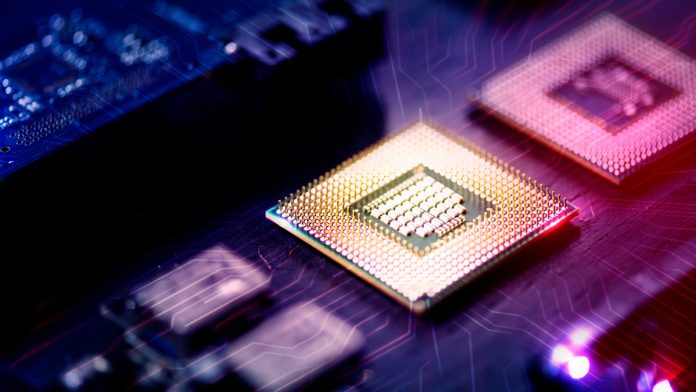By merging traditional methods with emerging computational innovations, researchers and engineers are unveiling unprecedented capabilities. Modern methods are not only enhancing creativity but are also transforming how we experience and manipulate sound. At the forefront of these changes is Quantum Computing in Audio Processing, which promises to revolutionize audio signal workflows, provide deeper analytical insights, and enable new levels of precision in creating, mixing, and mastering music.
| Table of Contents | |
|---|---|
| I. | Quantum Algorithms in Audio Signal Processing |
| II. | Quantum Fourier Transform for Spectral Analysis |
| III. | Quantum Noise Reduction and Error Correction |
| IV. | Real-Time Audio Processing on Quantum Platforms |
| V. | Quantum Machine Learning for Audio Synthesis |
| VI. | Hybrid Quantum-Classical Computing Architectures |
| VII. | Optimizing Mixing and Mastering with Quantum Techniques |
| VIII. | Enhanced Digital Signal Processing (DSP) Techniques |
| IX. | Quantum Simulation for Acoustic Environment Modeling |
| X. | Advancements in Quantum Hardware and Qubit Technology |
Quantum Algorithms in Audio Signal Processing
Innovative quantum algorithms are setting a new course in audio signal processing. These algorithms explore complex transforms that expedite data handling, offering a promising pathway to improve clarity and reduce computational overhead. By handling large datasets at unprecedented speeds, engineers can design filters and effects with greater precision. Emerging techniques in this space lay the groundwork for transforming traditional DSP methods, ensuring that future audio processing tools are both highly efficient and remarkably versatile.
Quantum Fourier Transform for Spectral Analysis
The application of the Quantum Fourier Transform is redefining spectral analysis. This method efficiently deciphers frequency components from complex audio signals, paving the way for enhanced sound analysis. In certain implementations, Quantum Computing in Audio Processing leverages these transformative techniques to achieve far superior resolution in digital audio breakdowns. By rapidly processing intricate signal details, professionals can uncover hidden layers in musical recordings, enabling targeted improvements during remixing and reconstruction processes.
Quantum Noise Reduction and Error Correction
Quantum-inspired strategies are increasingly applied to noise reduction and error correction in audio processing. By utilizing advanced quantum error correction methods, audio engineers can isolate unwanted artifacts and enhance overall signal fidelity. In select implementations, Quantum Computing in Audio Processing offers novel pathways to minimize digital distortions and interference. This approach fosters cleaner recordings and smoother playback, which is vital when capturing live performances or delicate acoustics in studio settings, ultimately improving the listening experience.
Real-Time Audio Processing on Quantum Platforms
Emerging quantum platforms are paving the way for real-time audio processing. With the capability to handle massive parallel computations almost instantaneously, these systems empower engineers to perform live signal manipulation during concerts and broadcasts. Such advancements could deliver next-level latency reductions and dynamic effects, providing transformative performance tools. Real-time capabilities extend the frontier of live sound engineering, pushing the limits of what is achievable on stage and in the studio.
Quantum Machine Learning for Audio Synthesis
Quantum machine learning is set to revolutionize audio synthesis by enabling systems to learn intricate musical patterns and timbres with unprecedented efficiency. These advanced models analyze vast datasets and predict audio outcomes, thereby streamlining the creative process. In many applications, Quantum Computing in Audio Processing integrates machine learning to dynamically generate novel soundscapes and textures. This integration not only accelerates synthesis but also deepens musical expression through algorithmically enhanced intuition and innovation.
Hybrid Quantum-Classical Computing Architectures
Hybrid computing architectures combine the best of quantum and classical systems for audio processing tasks. Such integrated models facilitate highly optimized workflows by balancing speed and precision, merging quantum parallelism with reliable classical algorithms. This synergy enables a broader range of audio processing capabilities while keeping legacy systems relevant. The future of sound engineering depends on such blended approaches, which promise to overcome the scalability issues of pure quantum or classical solutions, thereby reshaping music production pipelines.
Optimizing Mixing and Mastering with Quantum Techniques
New quantum methods are being developed to refine the mixing and mastering processes in music production. By strategically processing audio data at unparalleled speeds and precision levels, these techniques help isolate tracks more effectively and enhance tonal balance. When applied carefully, Quantum Computing in Audio Processing strategies offer a pathway to achieve far more detailed dynamic ranges and spatial imaging than traditional methods. This results in a clearer, more immersive sound experience that meets the high standards demanded by modern listeners.
Enhanced Digital Signal Processing (DSP) Techniques
Recent innovations in enhanced digital signal processing techniques integrate quantum principles to advance audio performance. This merging of disciplines creates more efficient algorithms capable of handling complex auditory data streams. Such progress not only improves the resolution of audio playback but also refines filter design and signal modulation techniques. In many instances, Quantum Computing in Audio Processing is recognized for pushing the boundaries of traditional DSP, allowing for more nuanced manipulation of sound characteristics and improved overall audio fidelity.
Quantum Simulation for Acoustic Environment Modeling
Quantum simulation techniques are now being used to model acoustic environments with exceptional accuracy. Engineers use these simulations to replicate real-world auditory spaces, predicting sound behaviors in virtual concert halls or recording studios. These detailed models aid in optimizing room acoustics and sound system configurations before physical implementation. Such forward-thinking strategies, including Quantum Computing in Audio Processing methodologies, are shaping a future where simulation and experimentation lead to faster, more cost-effective acoustic solutions that enhance the musical experience.
Advancements in Quantum Hardware and Qubit Technology
Constant improvements in quantum hardware and qubit technology are accelerating the transition from theory to practical audio applications. As qubits become more stable and scalable, they empower more complex algorithms for processing vast sound datasets. These advancements promise to boost the reliability and performance of systems used in high-fidelity sound reproduction. In several cases, Quantum Computing in Audio Processing frameworks are set to capitalize on these hardware breakthroughs, laying the foundation for next-generation music production tools that combine speed, precision, and creativity.

